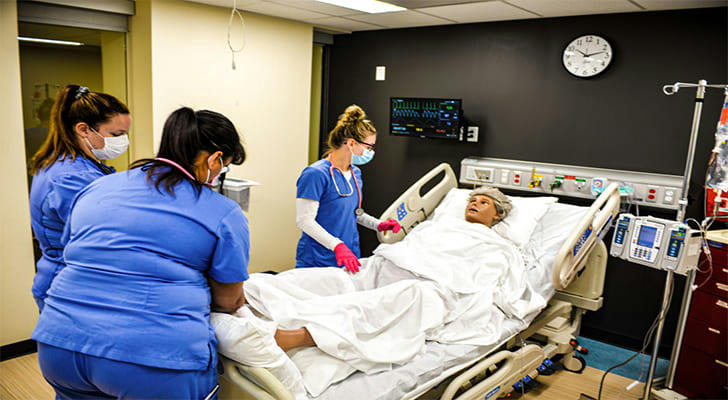CNA Certificate: Your Key to a High-Paying Job
In our aging society, the healthcare industry is booming. There's a growing need for nursing assistants (CNAs). CNAs are certified professionals who assist patients with daily living activities.
The U.S. Bureau of Labor Statistics predicts a 9% job growth for CNAs by 2031, indicating strong employment prospects.
Value of CNA Certificate
Professional certification is like a shining medal that enhances one's career. The CNA certificate is just such a medal, representing the holder's possession of professionally trained nursing skills. In the healthcare industry, the value of the CNA certificate is undeniable.

First, the CNA certificate is widely recognized in medical institutions and nursing homes. Many healthcare facilities prioritize applicants who hold CNA certificates when hiring nursing staff. For example, many large hospitals and nursing homes in the United States require nursing assistants to hold CNA certificates. Second, the CNA certificate provides holders with broad employment prospects. According to the U.S. Bureau of Labor Statistics, employment of CNAs is projected to grow 9% from 2021 to 2031, much faster than the average for all occupations. This indicates that the CNA profession is highly stable and has great potential for development. In addition, the CNA certificate provides holders with higher salaries. Compared to nursing staff without certificates, those with CNA certificates can often earn higher salaries. For example, in the United States, the average annual salary of nursing assistants with CNA certificates is higher than those without certificates. Finally, the CNA certificate provides holders with a good platform for career development. Many CNAs can advance to higher positions such as registered nurses and nursing supervisors through continuing education and training.
What Can You Do After Getting Certified?
With a CNA certificate in hand, you open the door to a wide range of career opportunities. CNA graduates can find employment in a variety of settings, including hospitals, nursing homes, community care, and home care. In the United States, for example, many CNA graduates work in nursing homes, where they assist elderly individuals with daily living activities and rehabilitation.

The career path for CNAs is not fixed. Through continuous learning and experience accumulation, CNAs can advance to higher positions. For instance, some CNAs choose to pursue further education and obtain a Registered Nurse (RN) license, which opens up more career opportunities.
Additionally, CNAs can also develop into nursing supervisors, nursing educators, and other roles.
The salary of CNAs varies depending on factors such as location, institution, and experience. Generally, nursing assistants with CNA certificates earn higher wages than those without certificates. According to the U.S. Bureau of Labor Statistics, the median annual wage for CNAs in the United States was $32,050 in 2021. In some larger cities or medical institutions, CNAs can earn even higher salaries.
How to Obtain a CNA Certificate
To become a Certified Nursing Assistant (CNA), you need to undergo specialized training and assessment.

Enrollment requirements are relatively simple, generally requiring applicants to be at least 18 years old, have a high school diploma or equivalent, and pass a background check. Once you meet these requirements, you can choose a certified nursing training institution to study.
Training content covers both theoretical knowledge and practical skills. In terms of theory, students will learn basic knowledge of human anatomy and physiology, disease care, first aid, infection control, and more. In terms of practice, students will train in simulated wards or real medical environments, such as measuring vital signs, assisting patients with eating, bathing, and turning.
The exam usually consists of a written exam and a skills exam. The written exam mainly tests the student's mastery of nursing theory, while the skills exam tests the student's practical skills. Upon passing the exam, students will receive a CNA certificate.
It's important to note that the requirements for CNA training and examinations may vary slightly from region to region. Therefore, it is recommended to consult the local health department or training institution before applying to learn about the specific enrollment requirements, training content, and exam arrangements.

In conclusion, a CNA certificate not only represents professional nursing skills but also opens the door to a wide range of career opportunities. Becoming a CNA can not only help others and enhance your own value but also lay a solid foundation for your future career development. If you are passionate about the nursing profession and want to make a contribution to society, then CNA is undoubtedly an ideal career choice. Let us work together to contribute to the medical cause!
